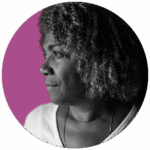
Good Engineering
Ethical Career Alternatives for Engineers
Rosalyn W. Berne
Artwork: “Nest III” by Suzanne Siegel © 2024
There’s a memory that sticks with me from the spring semester of 2004. I was teaching an undergraduate course on Engineering Ethics to graduating seniors of every major, including mechanical, electrical, aerospace, chemical, systems, computer, and biomedical engineering. It was a great class in that most of the students were deeply engaged in our varied conversations. The class size of 21 was small enough that we could form the chairs into a circle, a configuration most conducive to the provocative discussions we would have.
I was heartened by the apparent level of student interest and participation . . . except for the one student who seemed to dislike everything about the class, including me. She never smiled, she never spoke, and she never even looked me in the eye. Despite how put off I was by her attitude and behavior, I was determined to stay neutral in my dealings with her and to be objective in grading her assignments. Then came the last day of class. I went around the circle clockwise, asking each student to share their aspirations for their future lives as practicing engineers. This person, let’s call her Amy, was seated at about a third of the way around the circle.
“Amy, what about you? What do you see yourself doing with your life as an engineer? What are your hopes and dreams?” I asked her. She looked up, her eyes piercing mine with an intentional gaze I had never seen in her. She spoke without hesitation. “I never wanted to be an engineer. I always wanted to be a teacher. But I have no choice.”
I didn’t see that coming and yet couldn’t imagine proceeding to the next person without follow-up. “Of course, you have a choice, Amy,” I blundered. “No, I really don’t. My parents are uneducated. They immigrated here from Cambodia. They made sacrifices so I could get a university education. They are counting on me to be an engineer so I can make enough money to help support the family,” she replied.
Her words were a stab to my heart. What could I say? I did my best to bring closure before moving on to the next student. “Amy, I think you would make a wonderful teacher, and I hope that someday you can find your way into the classroom.” Wholly unsatisfied and feeling like I had somehow failed her, I proceeded. The next student was excited to share about starting a new job in an engineering consulting firm.
Amy was the only student in that class whose aspirations were to teach school, and probably the only one in the graduating class of 525 engineers. But she was far from alone in choosing to study engineering for employment purposes. Indeed, I would venture to guess that most of our students, then and now, have employment opportunities in mind as a primary factor when deciding to apply to attend the school of engineering. Over the last 10 years, applications to the undergraduate engineering program have continued to increase. Students, along with their parents, seem to be primarily concerned about securing well-paying jobs and employment stability. And who would blame them?
My department in the UVA School of Engineering, Engineering & Society, teaches two required courses in engineering ethics: micro-ethics, which asks students to think about themselves and the choices they make, the actions they take, and the encounters they have as individuals; and macro-ethics, which considers the role and function of engineering more generally, in its impact on communities, society writ large, and the planet. Both courses aim to prepare students to make ethical choices about how they will act, and how they will use the engineering skills they acquire. What we don’t do is to tell them what kind of engineering jobs they ought to pursue once they graduate. That kind of guidance is more likely to come from career services and their major advisors, i.e. where chemical engineers or mechanical engineers ought to look for jobs. As far as what makes an ethical engineering career, who’s to decide? Who or what would determine what makes an ethical engineering job?
This year has been particularly challenging for our graduating students, with hiring freezes and cutbacks happening across various industries that recruit engineers, and especially with the government contractors who are major recruiters at our school. By February 2025, students became concerned about whether they’d be able to get a job at all, or to hold onto job offers they had received during the fall; some offers were already being rescinded. Students participated in the usual recruiting visits with representatives from engineering firms, construction companies, manufacturing companies, technology companies, and government agencies, with aerospace and defense being among the most prevalent fields in demand. They pursued career counseling to identify their interests, skills, and talents, and learn how to match those with recruiters’ needs and wants. They prepared resumes, practiced their communication skills, and showed up at the career fairs hoping to be selected for an interview. They waited for callbacks and anxiously anticipated offers to work someplace exciting, in a secure job that would cover their living expenses, help pay off educational loans, and ideally lead to increasing responsibilities and leadership opportunities. All to be expected—in a normal year.
What I didn’t expect was that while many were anxious about the job market, even more so some were disappointed in the nature of the job prospects. As a director of our school’s new Engineering Character Strength Initiative (ECSI), I was approached by a member of the ECSI student leadership team. She said that many students she had spoken with wanted opportunities to work in ways that could change the world. She wanted to know if we could bring in ECSI speakers who represent alternatives to conventional engineering careers, to meet and hear from engineers who are working in inspiring, meaningful jobs:
“I came here wanting to make a difference, in a good way. Most of the opportunities I see are related to defense, and that’s not the kind of work I want to do. Please bring in speakers who work in engineering jobs that are helping people, and their communities, and the planet. I am not just asking for me; a lot of us want this.”
The first ECSI speaker of the academic year 2025–2026 was Ed Pierson, well-known as a Boeing whistleblower. As a former senior manager at Boeing’s 737 factory in Renton, Washington, Ed raised concerns about the dangerous production environment and risks to the safety of airplanes. He’d wanted Boeing leadership to shut down production but was ignored. And then came two fatal Boeing airliner crashes.
Ed’s visit was enormously popular with our students, partly because of his accessible persona and his warm, highly engaging communication style. Furthermore, he visited multiple classes, had meals with the students, and conveyed his authentic, impassioned commitment to aviation safety. I’d assumed that Ed would be well-received as a famous Boeing whistleblower. But I quickly realized that his appeal was something more; the students were wowed by that, but seemed more inspired by the fact of his leaving Boeing to become a major spokesperson for airline safety and an advocate for the victims of Boeing’s crashes. One student was so moved that she asked Ed for the opportunity to volunteer as an intern in his organization, soon to become a Flight Operations Analyst for Ed’s Foundation for Aviation Safety. A second student, who followed up with him after the visit, just graduated with a B.S. in Aerospace Engineering and now works for Ed.
The enormous turnout for Ed’s visit, and huge response from so many of our students, made clear the importance of their search for meaning and purpose in work, but also how important it is for them to have direct, personal exposure to people in the engineering world who are passionate and determined to have a positive impact on people’s lives. I watched as the students listened to Ed’s stories about his testimonies before congressional committees. I heard them note in their questions his various character traits: bravery, for example. I could sense them realizing that he was a person with clear values, hopes, and ambitions, trying to do his best to make a difference where he could, fighting to reduce the chances of another plane crash. I saw them respond to his compassion when he talked about the families of crash victims that he is trying to help.
The next ECSI speaker of the academic year was Jim Wetherbee, the only U.S. astronaut to have commanded five missions in space and to have landed the Space Shuttle five times. A former Deputy Director of the Johnson Space Center, after the Space Shuttle Columbia accident in 2003 Jim was the operational search director, responsible for finding the human remains of the flight crew. He then took his experience from the aerospace industry into the oil and gas industry where he served as a Safety and Operations Auditor for BP America. While there, he was a member of the investigation team for the Deepwater Horizon oil well blowout accident and the technical editor for their report. Jim’s biography attracted a significant audience to his lecture. And many students remained after his talk with follow-up questions. His message emphasized effective leadership behaviors to inspire people to perform with operating excellence. Students seemed to be intrigued by him.
From witnessing the impact of Ed and Jim’s visits, I felt that we were on the right track in exposing students to engineers with strength of character, clarity of values, and dedication to working for the greater good. Both visits underscored for me that it’s not up to us to tell students what work is virtuous, or which engineering jobs are more ethical than others. Rather, our responsibility and our challenge is to help our students identify, understand, and speak their own values, and to help them identify and realize opportunities to bring their own character strengths into their working lives.
Who’s to say that defense work, or oil and gas work, is categorically not good work “that helps people, and their communities, and the planet?” While I might deem that to be so for myself, I would never suggest that to my students. They must decide for themselves what kind of career path is an ethical one, as determined by whether a particular job or career aligns with their own values and beliefs. Given their relatively early stage of development when they arrive at our school, this is an endeavor that may require a variety of experiences and exposure to a variety of people before they gain a sense of what a virtuous vocational path will look like for them.
And yet, some students arrive with that clarity. One such student announced to me, at the end of an ethics course, his intention and desire to work in the entertainment industry. His eyes were bright and sparkled as he spoke, his mouth turned up in a wide grin. “That’s what I want to do.”
He graduated with a B.S. in Mechanical Engineering and headed for Orlando, Florida, to begin a job on the design team at Universal Destinations and Experiences. This is the same student who decided to use his undergraduate thesis to, in his words, “craft a framework for engineering students to use to make ethical, value-driven career decisions. With this new framework, I hope to empower students to look past the falsely unilateral path toward defense and create their own career pathways that validate their moral code.” His framework drew from the VIA instrument, something we had been introducing to students during ECSI events.
If our job is to help engineering students navigate the terrain of job prospects by using their own moral compasses to determine what is good, ethical work for themselves as engineers, while also preparing them to balance what could become difficult choices between the work they are inspired to do and the work they might need to do if, for example, income needs are a significant factor, then I feel good about bringing in speakers to model the possibilities. But I continue to ask myself what we as engineering educators could do better for students like Amy. I wonder what other tools, teaching methods, or extracurricular opportunities we can cultivate so that every student gets their best chance to find a meaningful vocational path that aligns with their core values and will help them to flourish in their professional lives.
 Rosalyn W. Berne is the Anne Shirley Carter Olsson Professor of Applied Ethics and Chair of the Department of Engineering and Society, School of Engineering and Applied Sciences, where she has been a faculty member since 1999 and co-directs the Online Ethics Center for Engineering and Science (OEC). She has authored several books, most recently Animals, Ethics, and Engineering: Intersections and Implications (Routledge, 2025), a seminal work that explores the intricate relationship between technology, ethics, and the welfare of nonhuman animals.
Rosalyn W. Berne is the Anne Shirley Carter Olsson Professor of Applied Ethics and Chair of the Department of Engineering and Society, School of Engineering and Applied Sciences, where she has been a faculty member since 1999 and co-directs the Online Ethics Center for Engineering and Science (OEC). She has authored several books, most recently Animals, Ethics, and Engineering: Intersections and Implications (Routledge, 2025), a seminal work that explores the intricate relationship between technology, ethics, and the welfare of nonhuman animals.
Fall 2025
Part I: Employing Virtue
Chris Higgins
Anna Bonta Moreland
Karen E. Bohlin
Zena Hitz
Interlude: Meaningful Employment
Michelle Weise
Part II: Employing Vocation
MORE

















